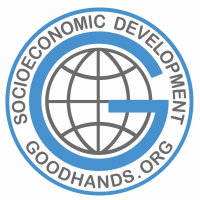Community & Social Support: Finding Help & Building Stronger Connections
Everyone needs support sometimes—and it’s okay to ask for it. This section focuses on finding help, building trust, and understanding how social systems work. Whether it’s local services, group activities, or communication challenges, the archive offers helpful tips and encouragement. You’ll also find clear explanations of common terms and ideas, so nothing feels out of reach. The goal is to help you feel more connected, more informed, and more able to take the next step when support is needed.
Understanding Social Terms
Altruism
Selfless concern for the well-being of others, often leading to acts of kindness or charity.
Advocacy
The act of supporting or arguing for a cause, policy, or group, often through awareness campaigns, legal efforts, or community initiatives.
Bias
A tendency to favor certain ideas, individuals, or groups, often in a way that’s unfair or unbalanced, affecting decision-making and perceptions.
Civic Engagement
Active participation in activities that promote the welfare or governance of a community, such as voting, volunteering, or joining advocacy efforts.
Community Development: The process of improving social, economic, and environmental conditions within a community through collaboration and innovation.
Cultural Competence
The ability to understand, communicate with, and effectively interact with people across different cultures, fostering respect and inclusion.
Disenfranchisement
The act of depriving individuals or groups of rights, particularly the right to vote or participate in civic activities.
Ethics
Principles that govern behavior, determining what is morally right or wrong in personal, professional, and social contexts.
Food Insecurity
Limited access to enough nutritious food for an active, healthy life, often due to financial, geographic, or systemic barriers.
Gentrification
The process of urban development that leads to the displacement of lower-income residents as property values and rent increase.
Hate Speech
Language that attacks, threatens, or discriminates against a person or group based on characteristics like race, religion, gender, or sexual orientation.
Human Rights
The basic rights and freedoms that belong to every person, regardless of nationality, ethnicity, gender, or other status.
Intersectionality
The overlapping and interconnected nature of social categorizations, such as race, gender, and class, and how they create discrimination or privilege.
Marginalization
The process of pushing individuals or groups to the edges of society, denying them access to resources, opportunities, and decision-making power.
Microaggressions
Subtle, often unintentional, actions or remarks that reinforce stereotypes or discrimination against marginalized groups.
Mutual Aid
A voluntary exchange of resources and services among people or organizations to support each other, particularly in times of crisis.
Nonprofit Organization (NGO)
An entity that operates for social, cultural, or humanitarian purposes rather than for profit, often focused on advocacy, education, or relief work.
Oppression
The systemic and prolonged mistreatment of certain groups by those in power, leading to inequality and limited access to resources.
Public Policy
A system of laws, regulations, and actions adopted by governments to address societal issues, such as healthcare, education, and housing.
Recidivism
The tendency of a previously incarcerated individual to reoffend and return to prison, often due to systemic barriers to reintegration.
Refugee
A person forced to flee their country due to war, persecution, or natural disasters, seeking safety in another nation.
Resilience
The ability of individuals or communities to recover from adversity, challenges, or crises and continue to thrive.
Safe Spaces
Environments designed to be free from discrimination, judgment, or harm, allowing marginalized individuals to express themselves freely.
Shelter Services
Temporary housing and support provided to individuals or families experiencing homelessness, domestic violence, or other crises.
Social Capital
The networks, relationships, and trust among people that enable communities to function effectively and support each other.
Social Determinants of Health
The conditions in which people are born, grow, live, work, and age that affect overall health and quality of life.
Social Mobility
The ability of individuals or families to improve their economic and social status, often measured by access to education, employment, and financial stability.
Trauma-Informed Care
An approach to healthcare and social services that acknowledges the impact of past trauma and seeks to provide supportive, healing-centered interactions.
Universal Basic Income (UBI)
A policy concept that proposes providing all citizens with a regular, unconditional sum of money to cover basic needs and reduce poverty.
Volunteerism
The act of offering time, skills, or resources to benefit a community, cause, or organization without financial compensation.

